Barbuda Ocean Club Establishes Sea Turtle Monitoring Program
Posted by Tim Cotroneo on Tuesday, June 16, 2020 · Leave a Comment
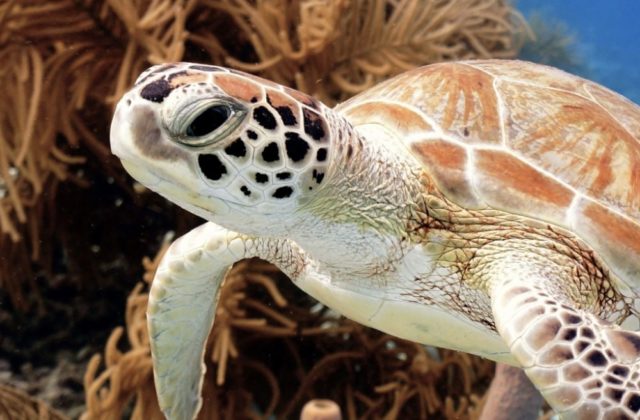
CODRINGTON, Barbuda (June 17, 2020) – Barbuda Ocean Club, a private resort and community on Barbuda in the West Indies, has established the island’s first permanent sea turtle monitoring program. The program released its 2019 annual report this week.
Led by acclaimed environmental scientist and Barbuda Ocean Club’s chief environmental consultant Dr. Deborah Brosnan, the monitoring program was created to help recover and protect endangered sea-turtles. Its goal is to use the best-available science to establish a robust, long-term monitoring protocol on Barbuda to enhance understanding, protection, and conservation of critical habitat.
The program has been designed with a grassroots approach, building a community-based sea turtle patrol team from among local Barbuda citizens. The team is trained in scientific monitoring methods, including GPS referencing techniques, GIS mapping, international standards for tagging and tracking turtles, and estimating clutch sizes and relocating at-risk nests.
“I couldn’t be more proud of the work the team has done this year, said Dr. Brosnan. “It’s rewarding to see their passion and dedication for the protection of the turtles and their willingness to learn important skills that help in the recovery of these endangered species.”
The program operates in conjunction with the government of Antigua and Barbuda, the Barbuda Council, and Wider Caribbean Sea Turtle Conservation Network (WIDECAST), at the University of the West Indies. The 2019 Report was well received and has been widely circulated on the WIDECAST Network.
Better habitat leads to more nesting
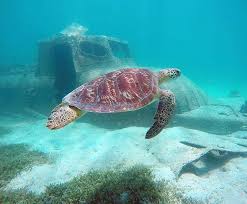
The program consists of six local team members. Training is led by Mr. Jepson Prince, a highly respected sea turtle expert in the Antiguan and Barbuda community. Work is focused around nesting season which typically runs May to November.
“I love saving sea turtles and ocean conservation which require many of the same actions,” said Barbudan team leader Rishma Mansingh. “We patrol four or more nights a week and can be in the field for many hours collecting critical data, depending on nesting activity.”
In an annual report just published, the team recorded 73 nesting events. Hawksbill turtles, the most common nesting species laid an average of 127 eggs per nest. Some 111 tiny hatchlings emerged from each nest and safely reached the ocean- indicating high nesting success. Though the program is in its infancy, the team recorded more sea turtle nests in 2020 compared to 2019. They believes this increase was partly due Barbuda Ocean Club removing old concrete walls from the beach areas of Coco Point, and restoring the native vegetation, making the area more conducive to turtle nesting. This year also was the first time that leatherbacks nested in the monitored sites.
Data from the ongoing study will be used by Peace Love Happiness Partnership and Discovery Land Company, developers of Barbuda Ocean Club, to guide development and maintenance practices for the resort community in order to protect and support the sea turtle population.
Barbuda Ocean Club
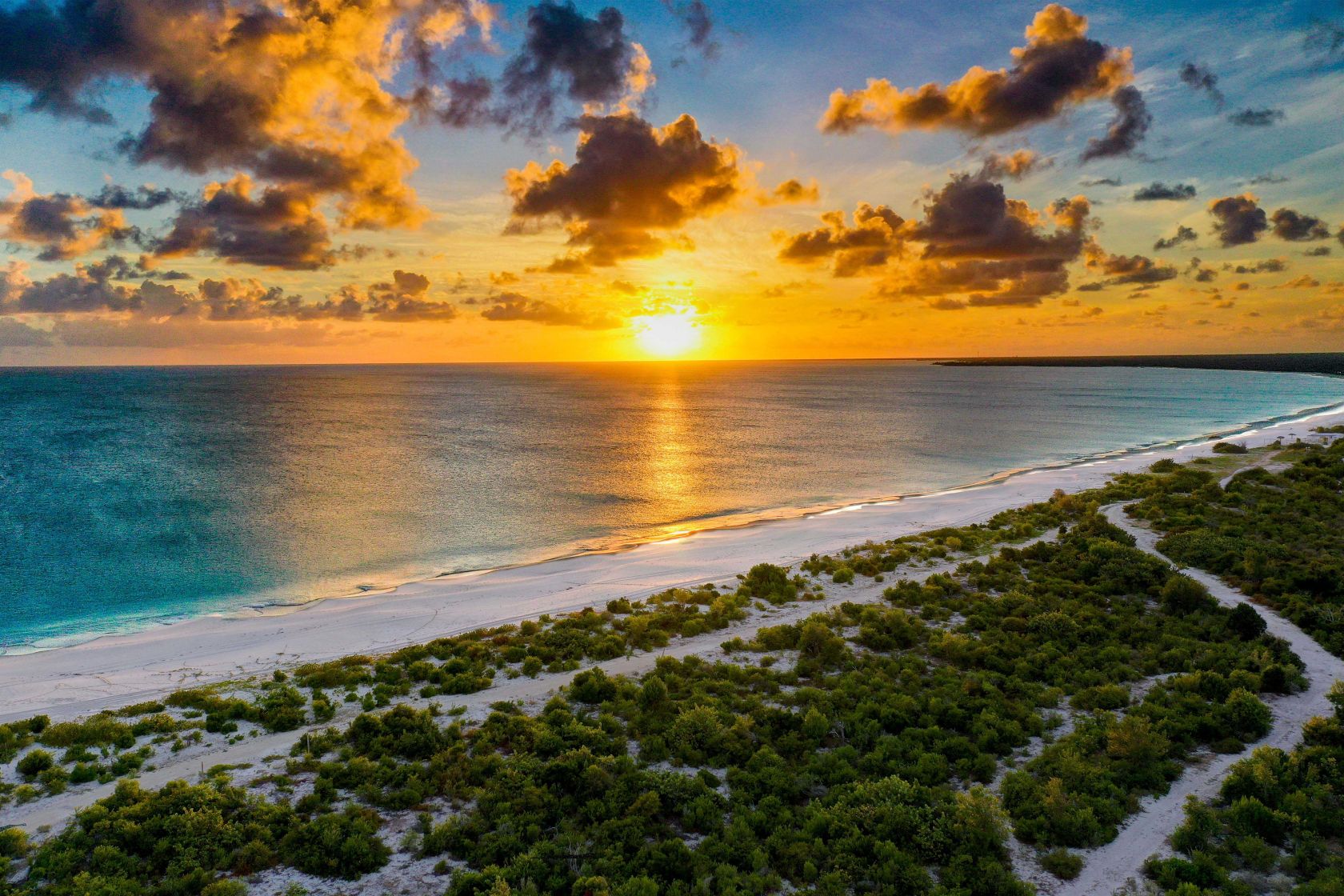
Barbuda Ocean Club is a private resort and community developed by Discovery Land Company, one of the world’s leading luxury developers. Barbuda Ocean Club is uniquely designed to capture the spirit of the land, while providing exceptional lifestyle and recreational experiences for members and guests. Likewise, Barbuda Ocean Club seeks to become a vital part of the Barbuda and Antigua community, helping to preserve its fragile environment and distinctive culture while supporting long-term economic growth and sustainability. Visit Barbuda Ocean Club to learn more.
Barbuda Ocean Club and The Environment
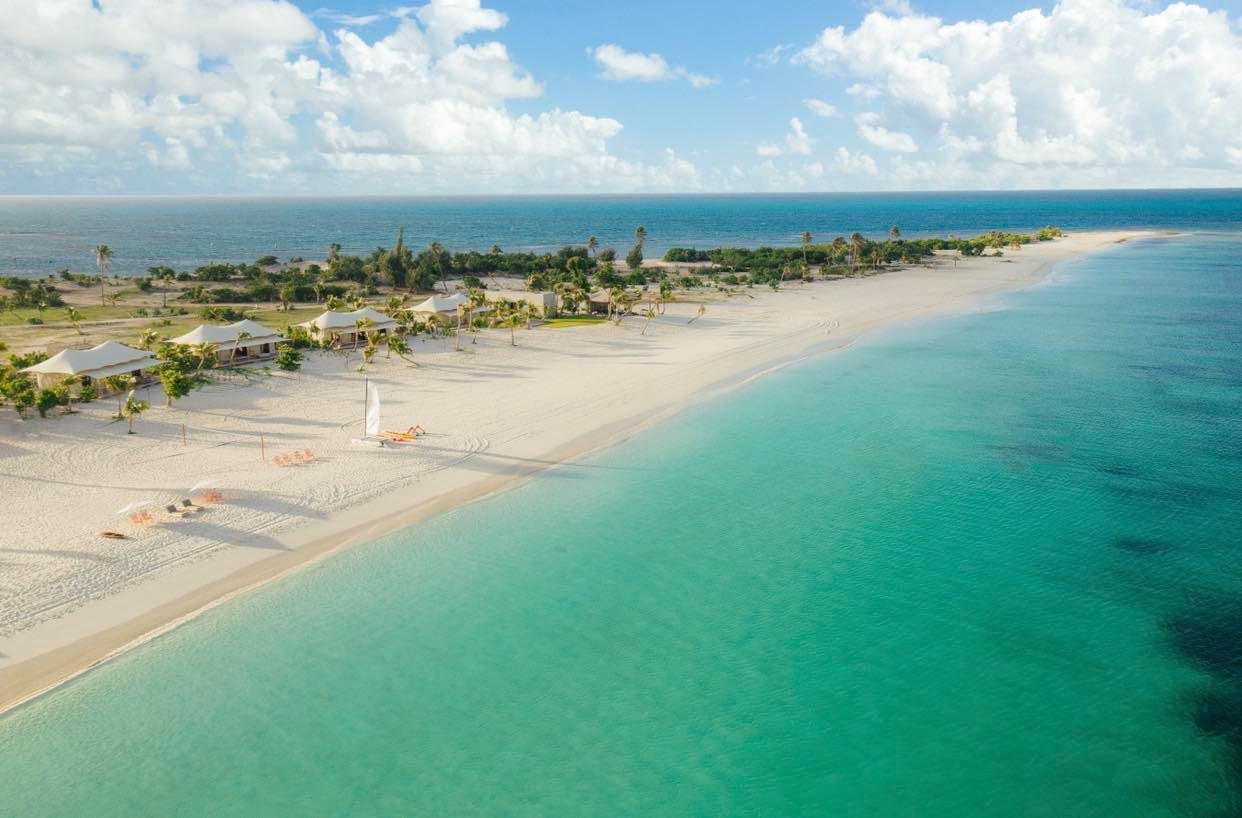
Barbuda Ocean Club is committed to restoring and preserving the island’s fragile environment. The development partners are investing heavily in the best available science and technology to understand the natural dynamics of Barbuda and are working closely with the local governments and population to guide the development and long-term operation of Barbuda Ocean Club for the benefit of all.
Dr. Deborah Brosnan
Heading up these efforts is Dr. Deborah Brosnan. As science and environmental consultant for Barbuda Ocean Club, Dr. Brosnan leads a team of scientists and expert peer-reviewers. Her team has developed a process in conjunction with the Antigua & Barbuda Department of Environment to shape the development while restoring and protecting the natural environment.
Dune Restoration
Decades of sand mining removed the island’s protective dunes and native vegetation. Scientific analysis following Hurricane Irma showed the loss of dunes contributed to the storm-surge damage. Barbuda Ocean Club is working to restore the dune ecosystem to safeguard against future storms and sea-level rise. This dune and native-plant restoration is an integral part of our ecosystem-based approaches to development.
Sea Turtle Monitoring
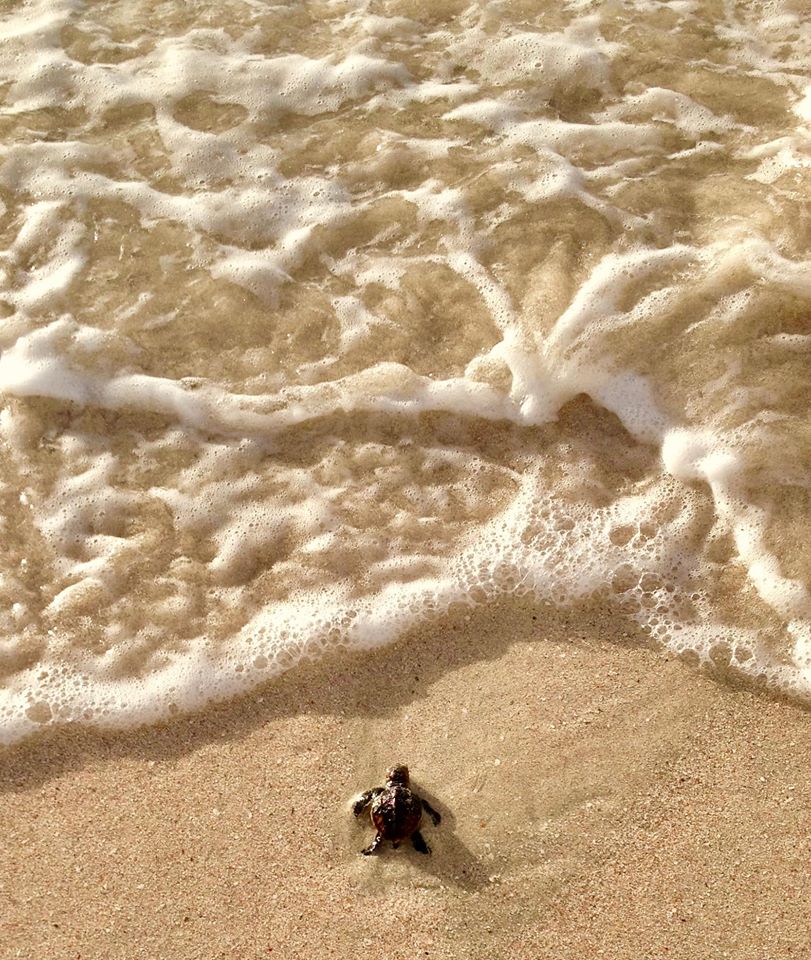
Three species of sea turtles nest on Barbuda. Barbuda Ocean Club’s sea turtle program works to identify, monitor and protect these nests on the site, and to track the movements of Barbuda’s sea turtles. Monitoring will take place each year with local Barbudans being trained to manage the monitoring program in order to ensure the long-term health of the nesting sites.
Water Quality Assurance
Using high-tech remote sensing, Barbuda Ocean Club is evaluating historic water conditions and monitoring current ones. Runoff will be strictly controlled to mitigate impact on the surrounding ecosystem. Additionally, the property will use low-impact development practices to capture and store as much rainfall as possible. Use of native and drought-resistant plants throughout the club will further reduce the need for water.
Environmental Studies
Our teams are using modern field analysis technology, including single and multi-beam side scan sonar to map the sea floor, as well as LiDAR drone imagery and topographic studies, GIS mapping, and sophisticated hydrodynamic models to identify risks, vulnerabilities and design solutions that are resilient against storm surges and sea level rise.
Storm Surge Analysis
Our scientific team is conducting state-of-the-science studies to analyze, monitor and determine potential hazards from wave and surge events. We are modeling the combined effects of storm surge under different sea-level rise scenarios and storm strengths and designing solutions to reduce risks. These efforts will enable Barbuda to better assess risks and prepare for future possibilities.
Native Vegetation/Invasive Species Clean-up
Barbuda Ocean Club is working to restore native vegetation and remove invasive plant species throughout the property. Currently, we are setting up a native plant nursery and will be using these species as the primary landscaping throughout the development.
Environmental Stewardship
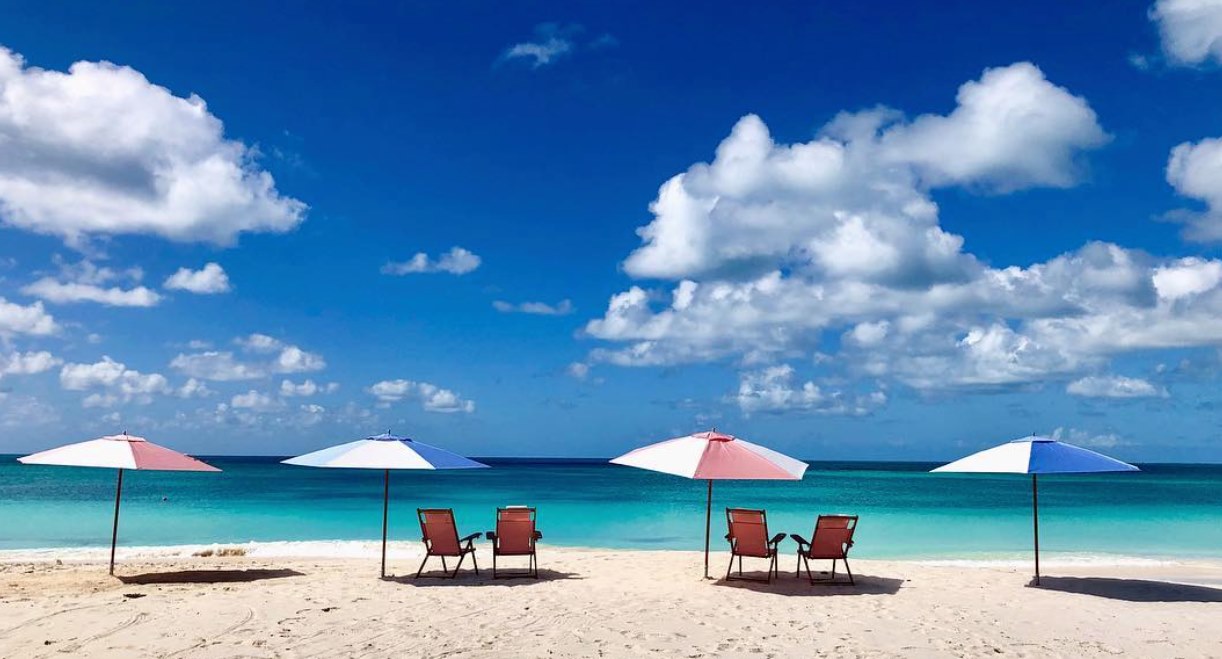
The Barbuda Ocean Club is fully committed to supporting the efforts of the Barbuda people, the Codrington Lagoon National Park and the environmental and natural resources agencies and organizations to gather critical data, protect endangered species and implement environmental stewardship. Our support includes the recruiting and training of local citizens in sustainability and environmental management jobs to advance stewardship and awareness locally.
Category: Dream Specials · Tags: Barbuda, Barbuda Ocean Club, Dr. Deborah Brosnan, LiDAR drone imagery, nesting, sea turtles
Categories
- Articles
- Australia
- Dream Destinations
- Africa
- Alaska
- Alberta
- Anguilla
- Antigua
- Argentina
- Arizona
- Aruba
- Australia
- Austria
- Bahamas
- Baja
- Bali
- Banff
- Barbados
- Barbuda
- Belize
- Bequia
- Bonaire
- Bora Bora
- Boston
- Botswana
- Brazil
- British Virgin Islands
- Cabo San Lucas
- California
- Canada
- Canary Islands
- Cancun
- Canouan
- Capri
- Chicago
- Chile
- Colorado
- Columbia
- Costa Rica
- Cozumel
- Crete
- Croatia
- Curacao
- Denmark
- Dominica
- Dominican Republic
- Ecuador
- England
- Europe
- Fiji
- finland
- Florida
- Florida Keys
- France
- Galapagos
- Georgia
- Granada
- Grand Cayman
- Greece
- Grenada
- Hawaii
- Hilton Head
- Hungary
- Ibiza
- Idaho
- Illinois
- India
- Indonesia
- Ireland
- Isla Mujeres
- Italy
- Jamaica
- Japan
- Kauai
- Kentuck
- Kenya
- Key Largo
- Key West
- Lake Como
- Lake Tahoe
- Las Vegas
- London
- Los Cabos
- Mackinac Island
- Malaysia
- Maldives
- Mallorca
- Marrakech
- Martinique
- Massachusetts
- Maui
- Mazatlan
- Mexico
- Michigan
- Minneapolis
- Minnesota
- Mississippi
- Missouri
- Monaco
- Montana
- Morroco
- Mykonos
- Napa Valley
- Nashville
- Nevada
- Nevis
- New Hampshire
- New York
- New York City
- North Carolina
- Norway
- Oregon
- Palm Harbor
- Palm Springs
- Panama
- Paris
- Patagonia
- Pennsylvania
- Peru
- Phuket
- Portland
- portugal
- Puerto Rico
- Puerto Vallarta
- Punta Cana
- Punta Mita
- Qatar
- Rhode Island
- Rhodes
- Riviera Maya
- Riviera Nayarit
- Saba
- Saint Lucia
- San Francisco
- Santorini
- Scotland
- Scottsdale
- Seattle
- Seychelles
- Sicily
- Singapore
- South Carolina
- Spain
- Sri Lanka
- St. Augustine
- St. Barths
- St. Croix
- St. John
- St. Kitts
- St. Lucia
- St. Maarten
- St. Thomas
- Sweden
- Switzerland
- Tenerife
- Tennessee
- Texas
- Thailand
- Toronto
- Trinidad
- Tulum
- Turkey
- Turks and Caicos
- Tuscany
- US Virgin Islands
- USVI
- Utah
- Vancouver
- Venice
- Vermont
- Washington
- Washington DC
- Wisconsin
- Wyoming
- Dream Golf
- Alabama
- Anguilla
- Arizona
- Bahamas
- Baja
- Barbados
- Bermuda
- Britain
- British Columbia
- Cabo San Lucas
- California
- Cambodia
- Cancun
- Colorado
- Costa Rica
- Cyprus
- Dominican Republic
- Dubai
- England
- Finland
- Florida
- France
- Georgia
- Hawaii
- Hilton Head
- Iceland
- Idaho
- Illinois
- Ireland
- Italy Golf
- Jamaica
- Japan
- Kauai
- Key Largo
- La Romana
- Lake Tahoe
- Lanai
- Las Vegas
- Los Cabos
- Malaysia
- Maui
- Mauritius
- Mazatlan
- Mexico
- Minneapolis
- Minnesota
- Mississippi
- Missouri
- Myrtle Beach
- Nayarit
- Nebraska
- Neuvo Vallarta
- Nevada
- Nevis
- New Hampshire
- New Jersey
- New York
- North Carolina
- Nova Scotia
- Ohio
- Oregon
- Palm Springs
- Panama
- Pennsylvania
- Portugal
- Puerto Rico
- Puerto Vallarta
- Punta Cana
- Punta Mita
- Qatar
- Rhode Island
- Riviera Maya
- Riviera Nayarit
- Scotland
- Scottsdale
- South Carolina
- Spain
- St. Augustine
- Switzerland
- Texas
- Tokyo
- Turkey
- Turks and Caicos
- Tuscany
- USVI
- Utah
- Vermont
- Virginia
- Dream Jobs
- Anguilla
- Antigua
- Arizona
- Aruba
- Bahamas
- Bonaire
- California
- Dominica
- Dominican Republic
- England
- Florida
- France
- Georgia
- Grand Cayman
- Grenada
- Italy
- Key Largo
- Key West
- Londo
- Loreto Mexico
- Los Cabos
- Maldives
- Maui
- Morocco
- Napa Valley
- Nevis
- Pennsylvania
- Peru
- Punta Cana
- San Diego
- Sedona
- South Carolina
- St. Augustine
- St. Barths
- St. Croix
- St. John
- St. Thomas
- Texas
- Trinidad
- Turks and Caicos
- USVI
- Zimbabwe
- Dream Specials
- Featured
- Jamaica
- St. Barths
- Whistler
Princess Cruise Line Caribbean Exclusive
Kiwi.com
Kiwi.com – Book Cheap Flights!
Tags
000 Lakes 1 Hotel Hanalei Bay 3 Glamour Villas 4th of July 5 Tropical Destinations 12 Reasons to Visit Vaud 22 Bishopsgate 37.5 Technology 70th anniversary 101 Rums Bar 1000 Year Old Road Trip 1648 Bar & Grille 1803 Golf Marketplace 2020 Platinum Award 2021 Explorers Club Medal 2022 Presidents Cup 2023 IAGTO Awards 2023 World Paella Cup 2024 2024 Masters Aaron Gibbs Aaron Salyer Abaco Club Abaco Club at Winding Bay Abaco Golf Club
 Travel Dreams Magazine
Travel Dreams Magazine